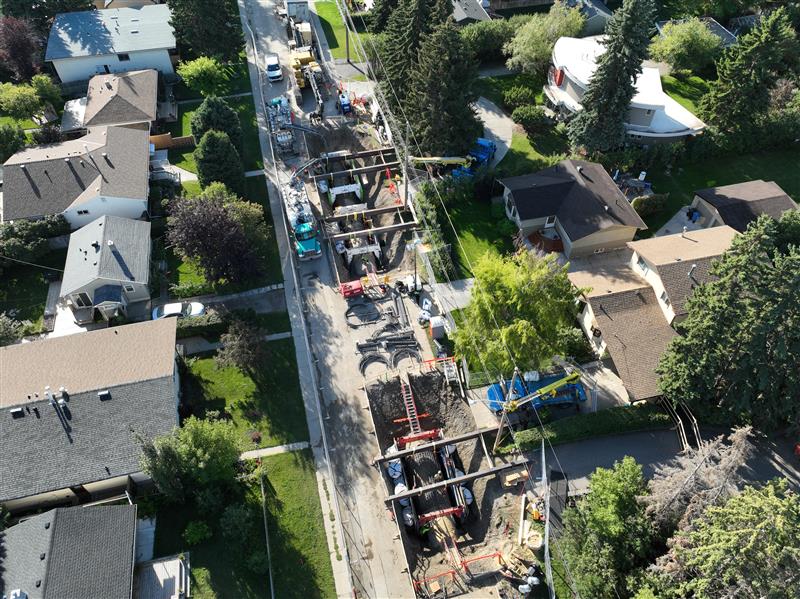Calgary releases findings on feeder main break, one councillor says it falls short

Posted Dec 11, 2024 9:44 am.
Last Updated Dec 12, 2024 6:31 am.
A nearly 600-page report on the catastrophic water feeder main break was shared before a Calgary city council committee meeting on Wednesday.
The full report investigates what cause the break of the Bearspaw South feeder main on June 5 that forced the city to scramble to conserve water and resulted in strict outdoor restrictions for most of the summer.
The investigation determined there were multiple factors that contributed to the rupture of the pipe at the main break and five additional “hot spots.”
Factors include the breakage of a significant number of wires, known as prestress wires, which are wrapped under tension around the pipe’s outer concrete core, resulting in a loss of the pipe’s ability to withstand pressure.
Officials say it appears the ruptured pipe experienced microcracking, or previous damage to the outer layer of the pipe, allowing soil to come in contact with the wires.
“The findings from this investigation have provided valuable insights into the causes of the failure and the steps needed to prevent similar events in the future,” says Steve Wyton, the city’s manager of asset planning. “Our priority now is planning for the long-term rehabilitation of the feeder main and implementing proactive measures to ensure a reliable and resilient water distribution system for Calgarians.”
The full report can be found here.
Councillor says feeder main report ‘underwhelming’
Despite the lengthy study, one councillor says there are still many unanswered questions, calling the report “underwhelming.”
Ward 1 Coun. Sonya Sharp says she and other members are disappointed with the results they’ve seen in the first 150 pages.
“If they’re saying it was chloride and there was wire snaps and yes — the pipe was 75 years old — how are we moving forward in these fixes so that we don’t see this in the next 10 years?” she said.
Sharp adds that the report addresses the factors that likely contributed to the break, such as corrosion, microcracking, and wire snaps, but doesn’t answer tough questions like why there were no inspections along the feeder main for almost a decade.
“Why didn’t anyone know this could’ve happened? What is wrong with our infrastructure? Is there a way of finding a solution moving forward that we know this will never happen again?” Sharp said. “We cannot relive the summer of 2024 ever again.”
READ MORE: Calgary releases early findings on cause of major water break
Mayor Jyoti Gondek says the report hasn’t revealed a smoking gun.
“So I would hope that administration is working with our consultant to understand how we can better do monitoring that is remote, that can allow us to see what the conditions are under the ground without having to dig things up,” she said.
However, there were some other lessons learned following this summer’s events.
“If there’s anything that we’ve learned this summer, you have to get information out to people as you know it, and hanging on to information until we have a report to submit is a habit we’re going to have to break,” Gondek said.
Sharp also takes issue with higher density in older communities and its impact on infrastructure, although city experts say that isn’t a cause for pipe ruptures.
Non-invasive testing using acoustic technology is scheduled for the spring.
-With files from Tiffany Goodwein








